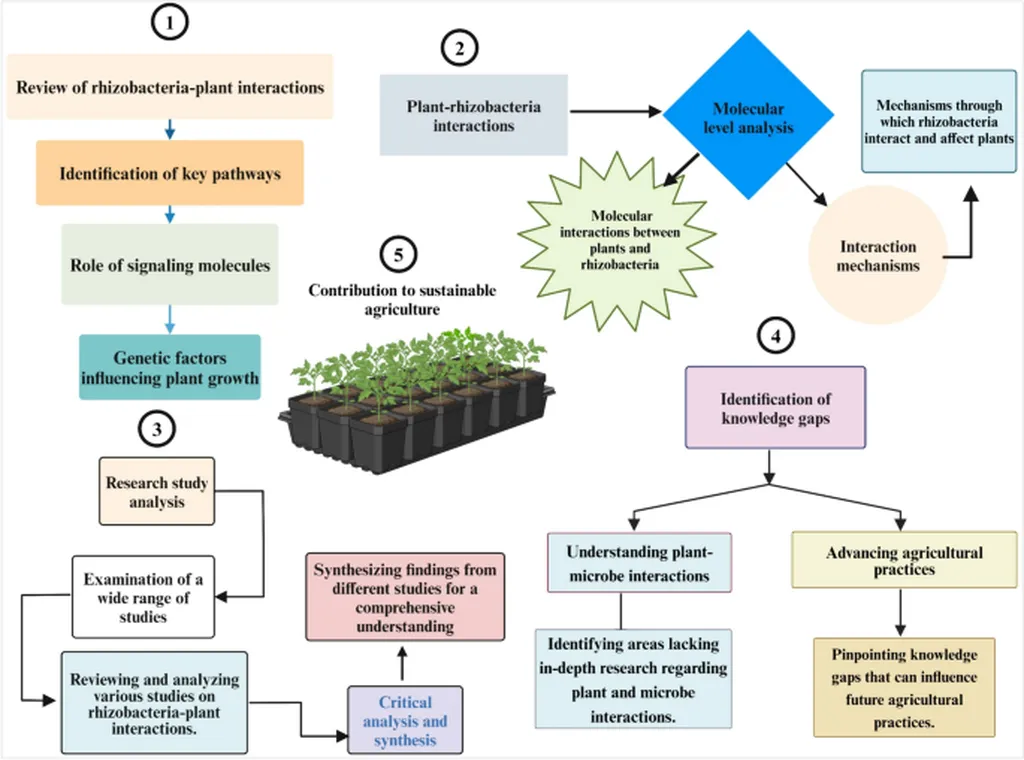In the heart of China’s Xinjiang region, researchers have uncovered a promising solution to one of agriculture’s most pressing challenges: the rise of fungal phytopathogens. A study led by Osama Abdalla Abdelshafy Mohamad, a scientist at the State Key Laboratory of Ecological Safety and Sustainable Development in Arid Lands, Xinjiang Institute of Ecology and Geography, Chinese Academy of Sciences, has revealed the dual functionality of a bacterium called Nocardiopsis alba B57 in both biocontrol and plant growth promotion. The research, published in the journal ‘npj Biofilms and Microbiomes’ (translated to English as ‘npj Biofilms and Microbial Communities’), offers a glimpse into a more sustainable future for agriculture.
The study focuses on the bacterium’s ability to produce secondary metabolites that can inhibit fungal growth and promote plant health. Using advanced metabolomics techniques, the team identified key metabolites such as carbapenem, menaquinone, and fumiquinazoline, which play crucial roles in these processes. “The comprehensive metabolomics data and statistical analysis confirmed that co-culturing of B57 and fungal strains showed upregulated metabolites like carbapenem and menaquinone,” Mohamad explained. This adaptive response suggests that B57 could be a powerful ally in the fight against crop-destroying fungi.
The implications for agriculture are significant. Synthetic fungicides, while effective, often have detrimental ecological impacts. The discovery of B57’s dual functionality opens the door to more environmentally friendly alternatives. “These findings underscore B57’s adaptive biosynthetic response to co-culture conditions, supporting its use as a sustainable biocontrol agent and boosting crop productivity,” Mohamad added.
The research also highlights the potential for metabolomics to uncover new insights into microbial interactions and their applications in agriculture. By understanding the metabolic pathways involved, scientists can develop more targeted and effective biocontrol strategies. This could lead to a reduction in the use of synthetic chemicals, promoting healthier soils and more sustainable farming practices.
The commercial impacts for the energy sector are also noteworthy. As the world shifts towards more sustainable energy sources, the demand for bio-based products is on the rise. Biocontrol agents like B57 could play a crucial role in enhancing crop yields, which in turn can support the production of biofuels and other bio-based products. This research not only advances our understanding of microbial interactions but also paves the way for innovative solutions in agriculture and beyond.
As the world grapples with the challenges of climate change and environmental degradation, the need for sustainable agricultural practices has never been greater. The discovery of Nocardiopsis alba B57’s dual functionality offers a beacon of hope, demonstrating the power of science to drive positive change. With further research and development, this bacterium could become a cornerstone of sustainable agriculture, helping to secure a healthier and more prosperous future for all.

